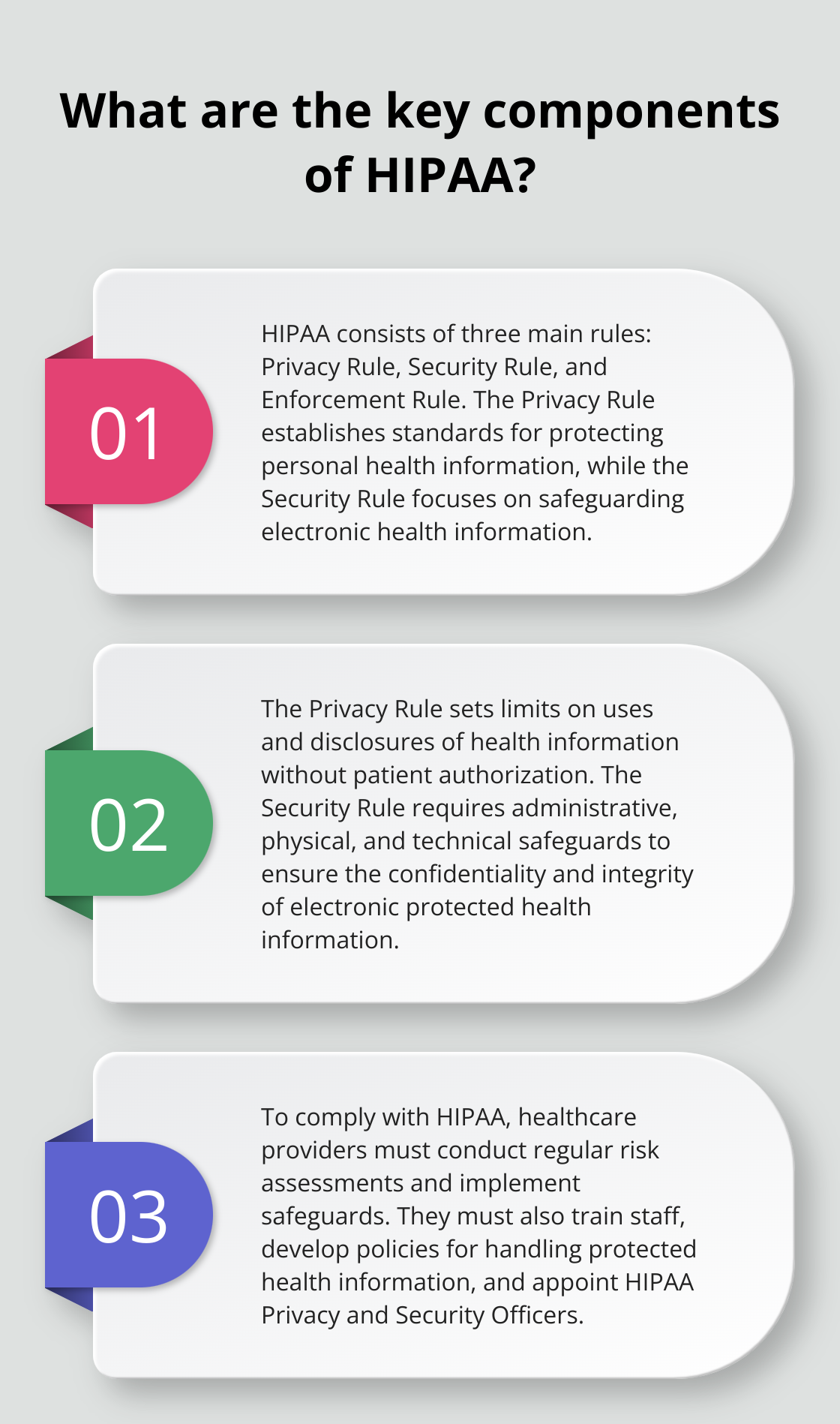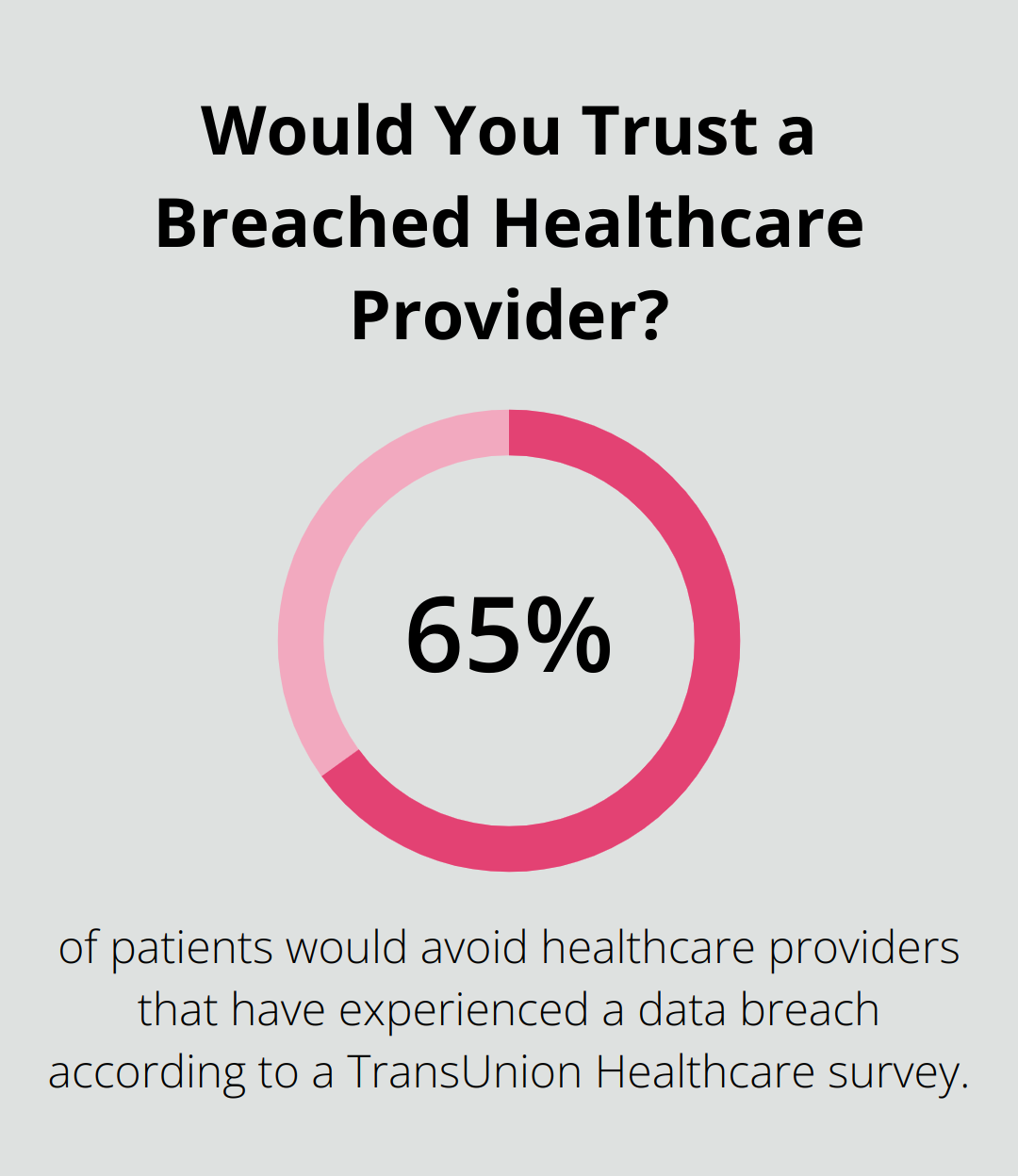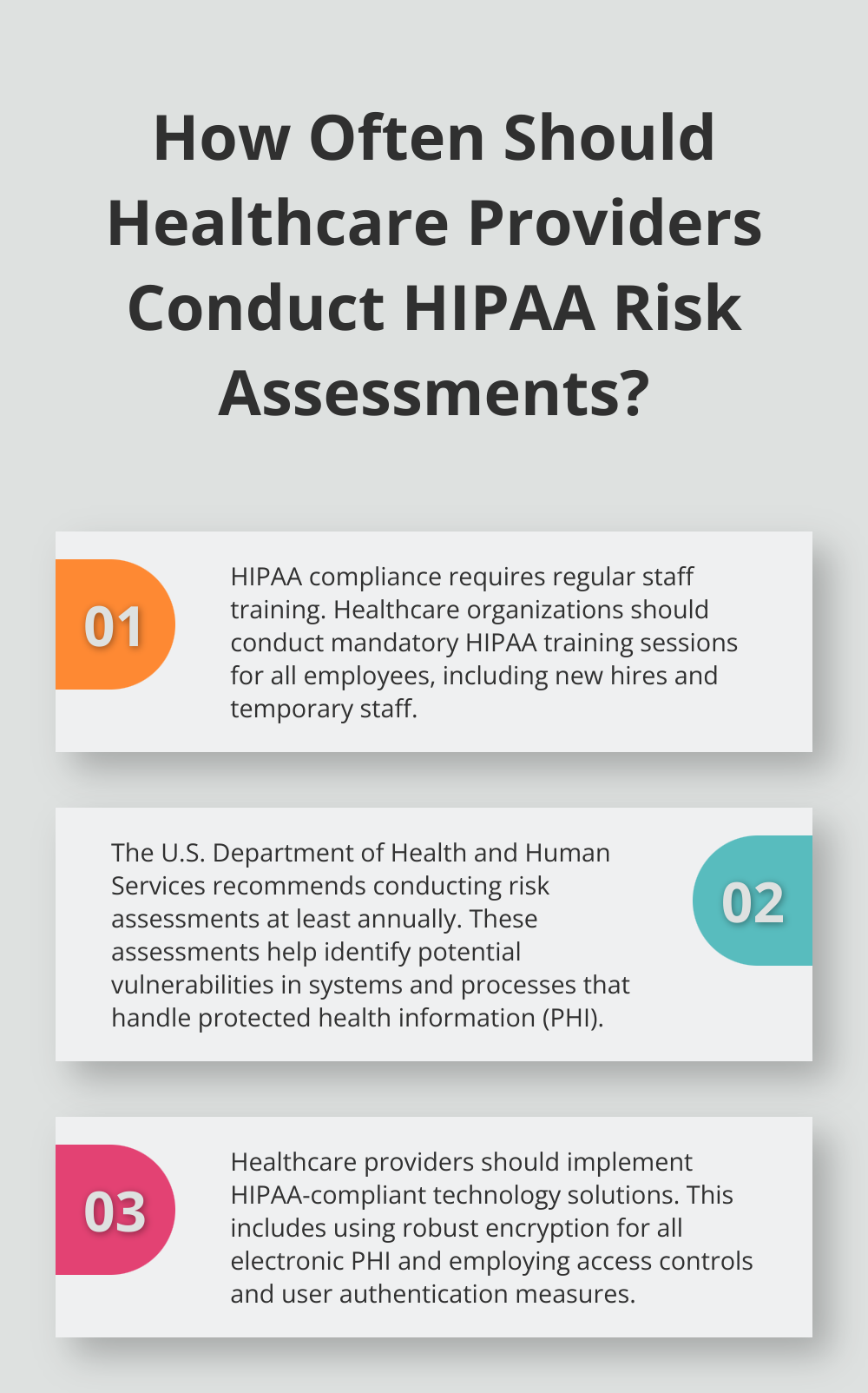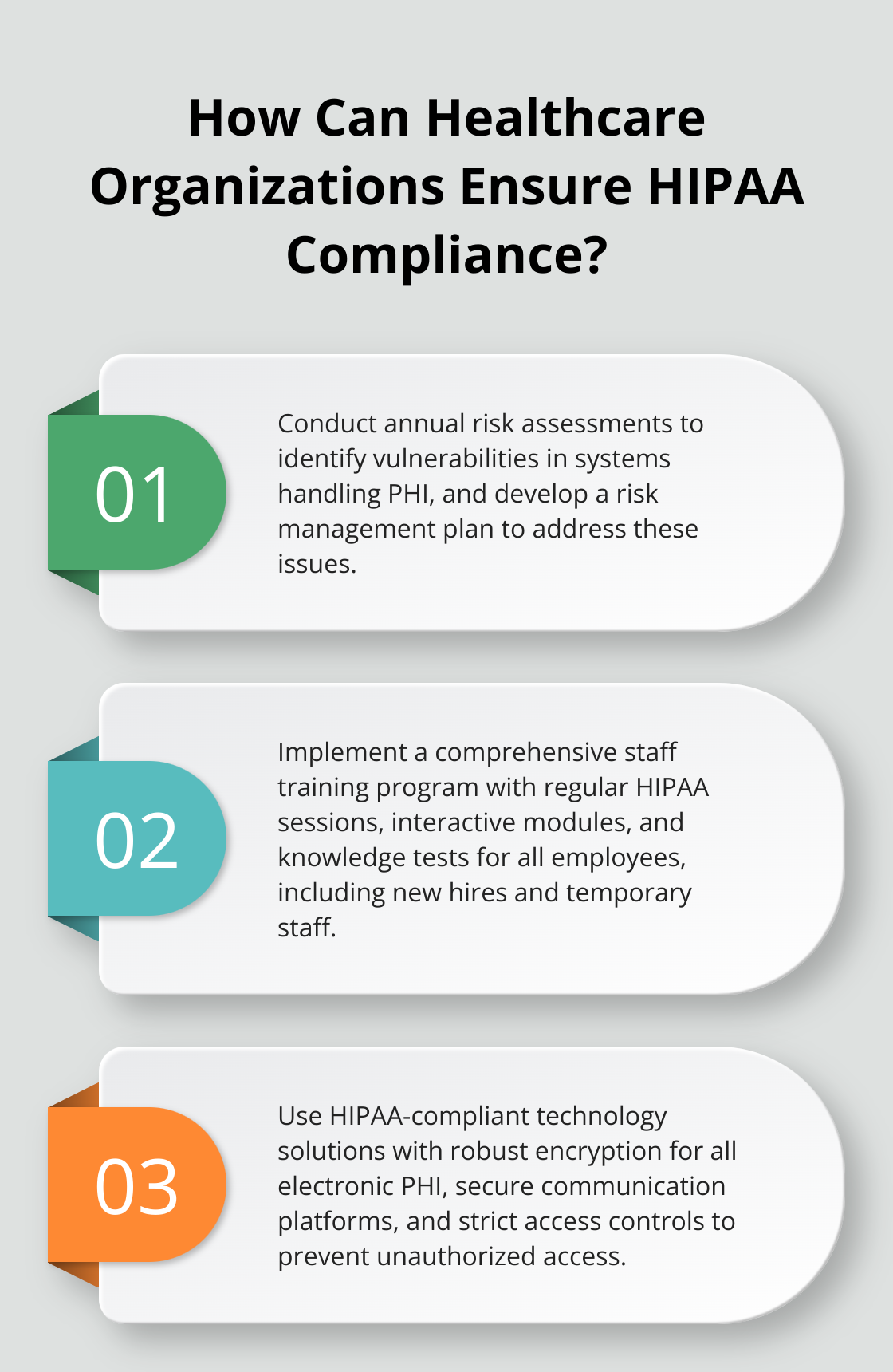HIPAA compliance is a critical aspect of healthcare operations in the United States. At ScriberJoy, we understand the gravity of protecting patient information and the serious implications of non-compliance with HIPAA regulations.
This blog post explores the consequences healthcare providers face when failing to meet HIPAA standards. We’ll also discuss effective strategies to maintain compliance and safeguard sensitive patient data.
What is HIPAA and Why Does It Matter?
HIPAA, or the Health Insurance Portability and Accountability Act, is a federal law enacted in 1996 to protect sensitive patient health information from being disclosed without the patient’s consent or knowledge. This act plays a vital role in maintaining patient privacy and trust in the healthcare system.
The Core Components of HIPAA
HIPAA consists of several rules that healthcare providers must follow:
- Privacy Rule: This rule establishes national standards for the protection of individuals’ medical records and other personal health information. It requires appropriate safeguards to protect the privacy of personal health information and sets limits and conditions on the uses and disclosures that may be made of such information without patient authorization.
- Security Rule: This rule sets national standards to protect electronic personal health information that is created, received, used, or maintained by a covered entity. It requires appropriate administrative, physical, and technical safeguards to ensure the confidentiality, integrity, and security of electronic protected health information.
- Enforcement Rule: This rule contains provisions relating to compliance and investigations, as well as the imposition of penalties for violations of the HIPAA Administrative Simplification Rules.
Key Requirements for HIPAA Compliance
To comply with HIPAA, healthcare providers must implement several measures:
- Conduct regular risk assessments to identify potential vulnerabilities in their systems and processes.
- Implement physical, technical, and administrative safeguards to protect patient information.
- Train all staff members on HIPAA regulations and the organization’s privacy policies.
- Develop and implement policies and procedures for handling protected health information.
- Appoint a HIPAA Privacy Officer and a HIPAA Security Officer.
- Maintain detailed records of compliance efforts and any breaches that occur.
Common Areas of Non-Compliance
Despite the clear guidelines, many healthcare providers struggle with HIPAA compliance. Some common areas of non-compliance include:
- Insufficient employee training
- Inadequate risk analysis
- Improper disposal of patient records
- Unauthorized access to patient data
- Lack of business associate agreements
The Importance of Staying Compliant
Healthcare providers must remain vigilant in their HIPAA compliance efforts. The consequences of non-compliance can be severe (both financially and reputationally). As technology evolves and new threats emerge, organizations must adapt their practices to ensure ongoing protection of patient data.

In the next section, we’ll explore the severe consequences that healthcare providers face when they fail to meet HIPAA standards. These penalties serve as a stark reminder of the importance of maintaining robust compliance measures in the healthcare industry.
The High Cost of HIPAA Violations
Financial Penalties That Can Bankrupt Organizations
The Office for Civil Rights (OCR) at the U.S. Department of Health and Human Services enforces HIPAA rules with significant financial penalties. These fines range from $100 to $50,000 per violation, with a maximum penalty of $1.5 million per year for each violation. In 2018, Anthem Inc. paid a record $16 million to settle HIPAA violations affecting almost 79 million people. Such hefty fines can cripple healthcare organizations, especially smaller practices.
Criminal Charges: When Negligence Becomes Illegal
Severe HIPAA violations can lead to criminal charges. The Department of Justice prosecutes individuals who knowingly obtain or disclose protected health information (PHI). Penalties include fines up to $250,000 and imprisonment for up to 10 years. In 2019, a former patient coordinator at a New York medical center received a 12-year prison sentence for selling patient information. These cases highlight the serious legal consequences of HIPAA non-compliance.
Professional Consequences: Losing Practice Rights
Healthcare professionals who violate HIPAA face disciplinary action from state licensing boards. This action can result in the suspension or revocation of medical licenses and certifications. The American Medical Association reports that numerous physicians have lost their licenses due to HIPAA violations, effectively ending their careers. The loss of professional credentials can devastate a healthcare provider’s future prospects.
Reputational Damage: Irreparable Trust Loss
Perhaps the most enduring consequence of HIPAA violations is the loss of patient trust and damage to an organization’s reputation. A TransUnion Healthcare survey found that 65% of patients would avoid healthcare providers that have experienced a data breach. This loss of trust leads to decreased patient retention and difficulty attracting new patients, potentially causing long-term financial harm (and in some cases, forcing practices to close).
Operational Disruptions: The Hidden Costs
HIPAA violations often result in significant operational disruptions. Organizations must allocate substantial resources to investigate breaches, implement corrective actions, and manage the fallout. These efforts can divert attention and funds from patient care and other essential operations. The time and energy spent on damage control (often spanning months or even years) can severely impact the quality of care and overall organizational efficiency.

The severe consequences of HIPAA violations underscore the critical importance of maintaining robust compliance measures. Healthcare providers must prioritize comprehensive staff training, regular security audits, and the implementation of secure, HIPAA-compliant tools and processes. The next section will explore effective strategies to ensure HIPAA compliance and protect your organization from these devastating penalties.
How Can Healthcare Providers Ensure HIPAA Compliance?
Implement Comprehensive Staff Training
Staff training forms the foundation of HIPAA compliance. Healthcare organizations should:
- Conduct regular, mandatory HIPAA training sessions for all employees (including new hires and temporary staff).
- Use real-world scenarios and interactive modules to improve retention of HIPAA principles.
- Test employees’ knowledge regularly and provide additional training where needed.
- Keep detailed records of all training activities to demonstrate compliance efforts.
Perform Continuous Risk Assessments
Regular risk assessments help organizations identify potential vulnerabilities in their systems and processes. The U.S. Department of Health and Human Services recommends conducting these assessments at least annually. Key steps include:
- Evaluate all systems and processes that handle protected health information (PHI).
- Identify potential threats and vulnerabilities to PHI security.
- Assess current security measures and their effectiveness.
- Develop and implement a risk management plan to address identified vulnerabilities.
Leverage HIPAA-Compliant Technology
Utilizing HIPAA-compliant software and technology is essential for maintaining data security. When selecting technology solutions, healthcare providers should:
- Choose vendors with a proven track record of HIPAA compliance.
- Implement robust encryption for all electronic PHI (both at rest and in transit).
- Use secure, HIPAA-compliant communication platforms for sharing patient information.
- Employ access controls and user authentication measures to prevent unauthorized access to PHI.

For medical transcription needs, ScribeJoy offers a HIPAA-compliant solution that combines AI technology with human verification, ensuring both efficiency and accuracy in documentation while maintaining strict compliance standards.
Establish Strict Policies and Procedures
Developing and enforcing comprehensive policies and procedures is critical for HIPAA compliance. Healthcare organizations should:
- Create clear, written policies covering all aspects of HIPAA compliance (including privacy, security, and breach notification procedures).
- Review and update these policies regularly to reflect changes in regulations or organizational practices.
- Ensure all staff members understand and adhere to these policies through regular communication and enforcement.
- Implement a system for reporting and addressing potential HIPAA violations promptly.
These strategies can significantly reduce the risk of HIPAA violations and protect healthcare providers from the severe consequences of non-compliance. HIPAA compliance requires an ongoing commitment to protecting patient privacy and maintaining trust in the healthcare system.
Final Thoughts
The implications of non-compliance with HIPAA extend far beyond financial penalties. Healthcare providers risk criminal charges, loss of professional credentials, and irreparable damage to their reputation. These consequences can devastate organizations, potentially ending careers and forcing practices to close.

Healthcare providers must adopt a proactive approach to HIPAA compliance to avoid these dire outcomes. This includes staff training, risk assessments, HIPAA-compliant technology, and strict policies. ScribeJoy offers a solution that combines AI technology with human verification to ensure accurate and secure medical documentation.
As the healthcare landscape evolves, HIPAA compliance efforts become increasingly important. Healthcare providers can maintain patient trust, avoid crippling penalties, and uphold the highest standards of patient privacy and data security (through vigilant compliance measures). ScribeJoy enables healthcare professionals to focus on patient care without compromising on compliance or efficiency.

Leave a Reply
You must be logged in to post a comment.